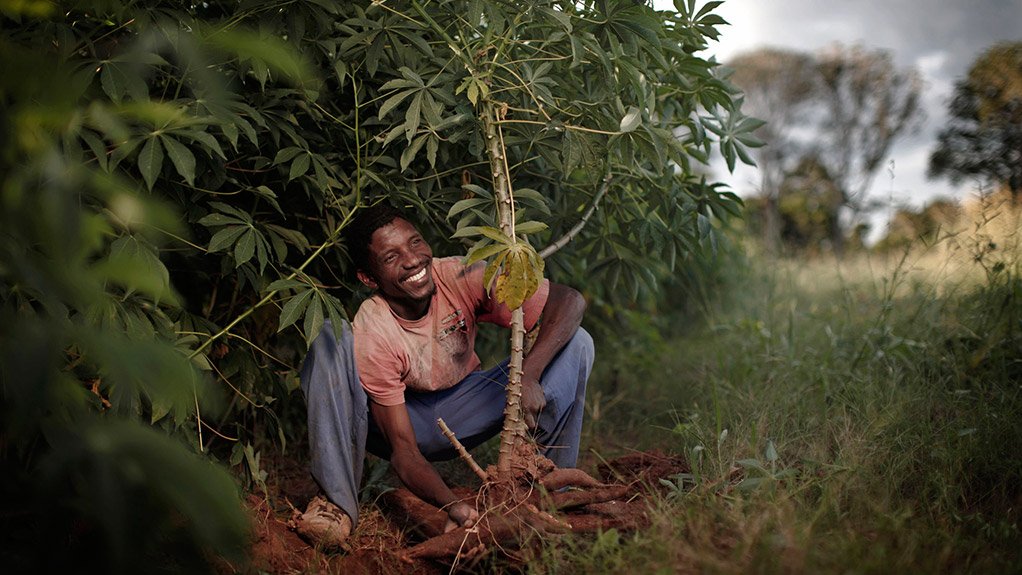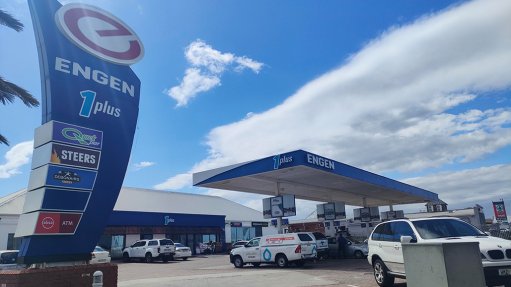Nedbank, IFC launch $50m facility for agriculture producers, traders in SSA
Nedbank’s Capital division and the International Finance Corporation (IFC) have launched a $50-million working capital finance and warehouse scheme to help commodity traders and processors in sub-Saharan Africa (SSA) import agricultural commodities and export cash crops, with the first deal already having been signed with rice importers in Liberia.
Nedbank explained in a release on Tuesday that this funding had ensured that food was still delivered to the country without any disruption, despite the Ebola outbreak threatening food security with restrictions on air travel and border closures.
IFC regional head of manufacturing, agribusiness and services for SSA German Vegarra added that the private sector had a crucial role to play in containing the economic effects of Ebola. “By partnering with Nedbank, IFC and [the] Global Agriculture and Food Security Program will support commodity trade in Liberia to maintain economic activity and ensure food security in the country.”
“The scheme is crucial to deal with the real challenge of food security across the continent,” noted Nedbank Capital Global Commodity Finance (GCF) head Sekete Mokgehle, adding that Nedbank, as the only South African bank to have signed with the IFC, was “extremely pleased” to be able to play its part towards ensuring that food, a basic human right, was available to all African citizens.
In SSA, in particular, 20 (71%) countries had recorded an overall improvement in food security, according to the Global Food Security Index 2014, but countries in the region still made up the bulk of the bottom tier of the index. Although the region had recorded high economic growth rates over the past five years, food security and, particularly, food affordability continued to be undermined in SSA.
Nedbank hoped that the working capital finance and warehouse scheme would address, among many other challenges, SSA’s low average income, widespread poverty, weak logistical infrastructure, political unrest and heavy reliance on costly food imports amidst large geographical areas.
The scheme, which was part of the IFC’s Global Warehouse Finance Program (GWFP), was focused on providing funding to farmers and traders in emerging and nondeveloped countries in Africa who were often unable to procure finance owing to a lack of sufficient conventional loan collateral.
The deals would be structured on a warehouse concept, with the physical commodity or collateral being stored in warehouses or other acceptable storage and in-transit methods to mitigate potential risks. As the product was sold, the trader would pay the lender, enhancing cash flow for the farmer but still protecting the commodity on behalf of the financier.
“The GWFP covers transactions in Africa, excluding South Africa, whereby Nedbank’s GCF division provides finance against a specific agricultural commodity. This is managed under a collateral management arrangement, stock monitoring arrangement, warehouse receipt financing, in-transit against a freight forwarders receipt or similar financing structures,” advised Mokgehle, adding that GCF already provided these products and had been doing so since 1999 in its normal course of business.
He noted that the arrangement with the IFC would allow Nedbank Capital to provide additional funding to African importers and exporters, thereby, stimulating the growth of local businesses in less developed countries, where financing was difficult to come by or offered at exorbitant rates.
Nedbank Capital, ultimately, intended to assist in the growth of gross domestic product and economies of these countries, and would secure food supply in respect of imports to countries where the bank may have previously been restricted in terms of limits and risk appetite.
Mokgehle added that, in terms of exports, additional funding would result in an increase in foreign exchange earnings for local countries, which would stimulate job creation. “These benefits would be passed on to local farmers who would have easier access to sell their produce at more transparent and improved prices. The programme, therefore, provides a ‘win-win’ solution for all stakeholders along the agriculture commodities supply value chain in Africa.”
Comments
Press Office
Announcements
What's On
Subscribe to improve your user experience...
Option 1 (equivalent of R125 a month):
Receive a weekly copy of Creamer Media's Engineering News & Mining Weekly magazine
(print copy for those in South Africa and e-magazine for those outside of South Africa)
Receive daily email newsletters
Access to full search results
Access archive of magazine back copies
Access to Projects in Progress
Access to ONE Research Report of your choice in PDF format
Option 2 (equivalent of R375 a month):
All benefits from Option 1
PLUS
Access to Creamer Media's Research Channel Africa for ALL Research Reports, in PDF format, on various industrial and mining sectors
including Electricity; Water; Energy Transition; Hydrogen; Roads, Rail and Ports; Coal; Gold; Platinum; Battery Metals; etc.
Already a subscriber?
Forgotten your password?
Receive weekly copy of Creamer Media's Engineering News & Mining Weekly magazine (print copy for those in South Africa and e-magazine for those outside of South Africa)
➕
Recieve daily email newsletters
➕
Access to full search results
➕
Access archive of magazine back copies
➕
Access to Projects in Progress
➕
Access to ONE Research Report of your choice in PDF format
RESEARCH CHANNEL AFRICA
R4500 (equivalent of R375 a month)
SUBSCRIBEAll benefits from Option 1
➕
Access to Creamer Media's Research Channel Africa for ALL Research Reports on various industrial and mining sectors, in PDF format, including on:
Electricity
➕
Water
➕
Energy Transition
➕
Hydrogen
➕
Roads, Rail and Ports
➕
Coal
➕
Gold
➕
Platinum
➕
Battery Metals
➕
etc.
Receive all benefits from Option 1 or Option 2 delivered to numerous people at your company
➕
Multiple User names and Passwords for simultaneous log-ins
➕
Intranet integration access to all in your organisation




















